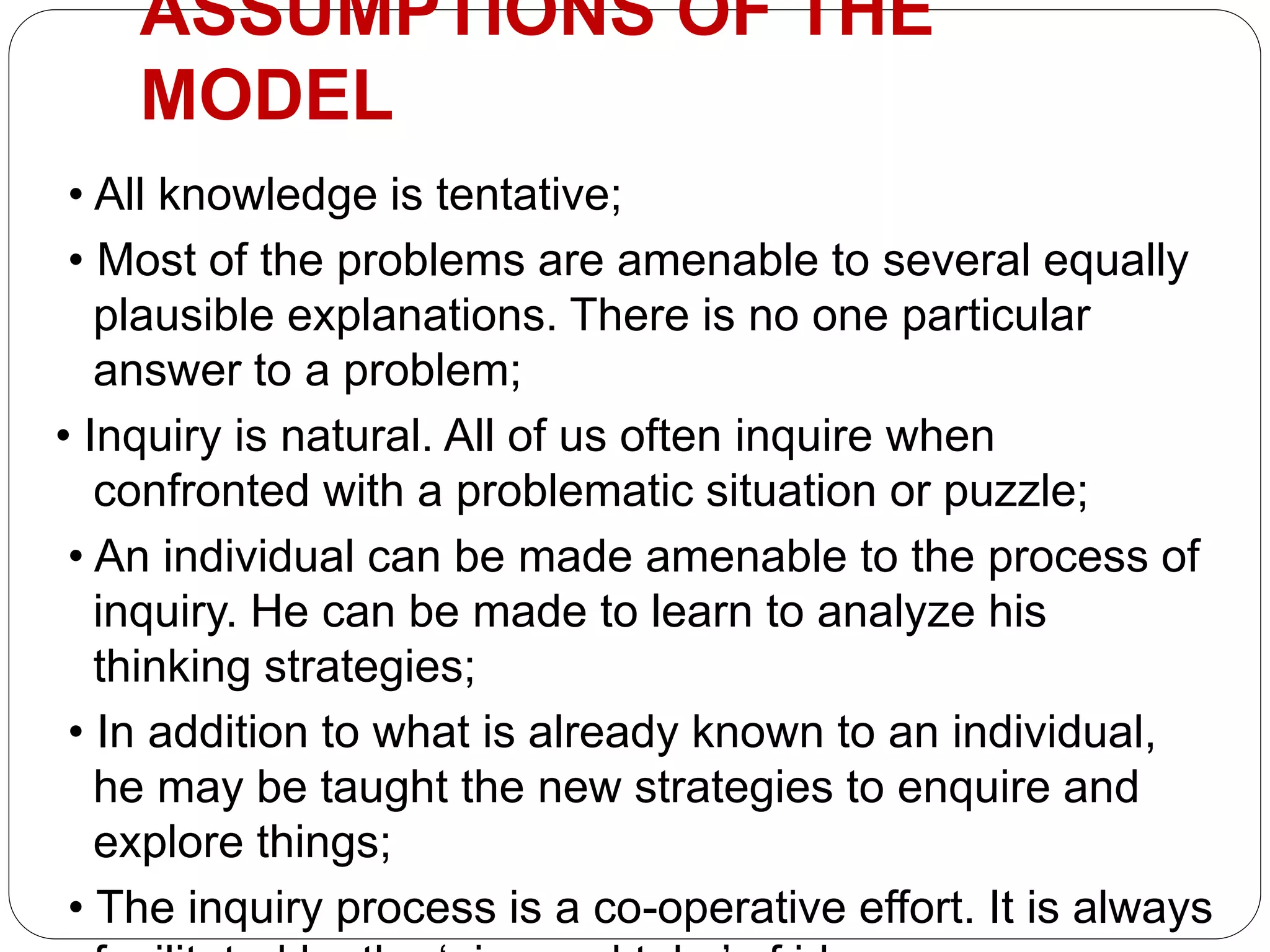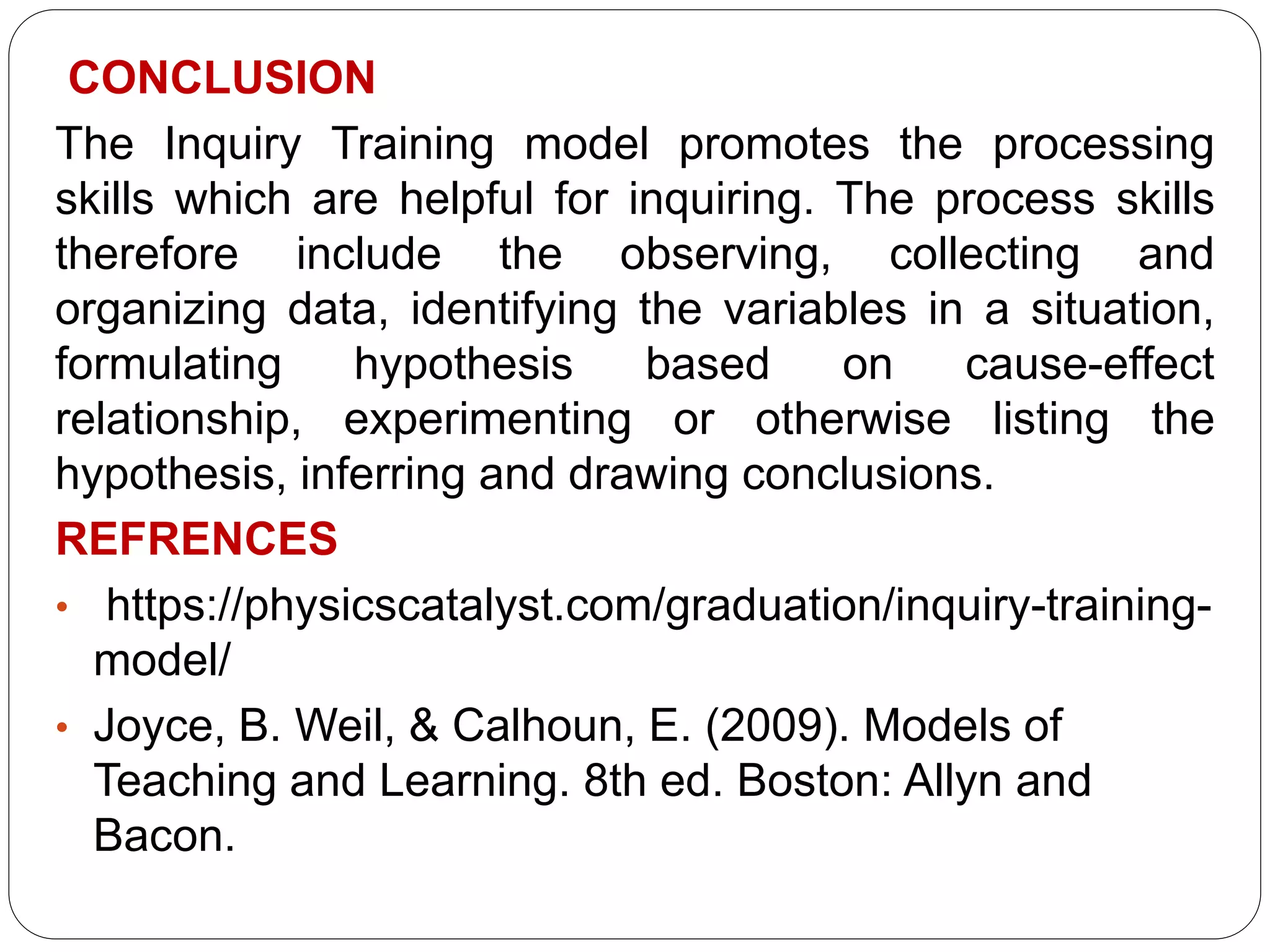The Inquiry Training Model was designed by Richard Suchman to teach students to engage in causal reasoning and become more proficient in asking questions, developing hypotheses, and testing them through interaction with teachers and peers. The model aims to help students develop intellectual discipline and inquiry skills by having them raise questions and search for answers related to problems or puzzles. Key elements include confronting students with problems, gathering data through verification and experimentation, and encouraging interaction as students develop and test hypotheses.







